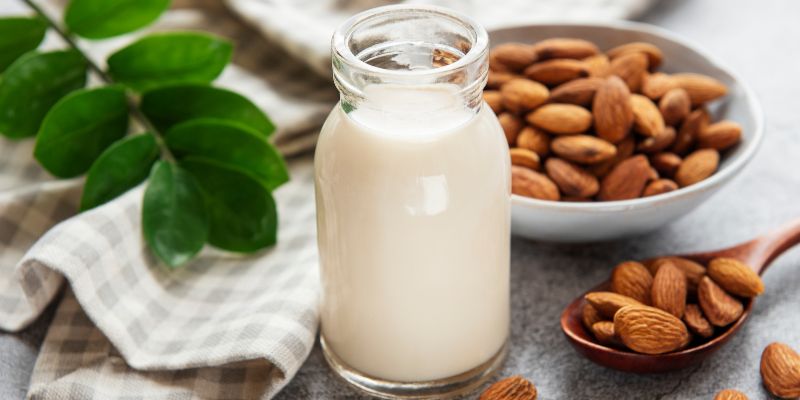When it comes to baking cakes, choosing the right oil can make a significant difference in the texture, flavor, and overall success of your baked goods. There are various types of oils available, each with its unique properties that can affect your cake in different ways. This article will guide you through the process of selecting the best oil for your baking needs, considering factors like flavor, health benefits, and the type of cake you're preparing.
Understanding Different Types of Oils:
Vegetable Oil

Vegetable oil is one of the most common oils used in baking due to its neutral flavor and high smoke point. It ensures that the taste of the oil does not overpower the other ingredients in your cake. This oil is perfect for a wide range of cakes, including chocolate, vanilla, and carrot cakes. Moreover, its light texture helps in creating moist and tender cakes without making them greasy.
Canola Oil
Canola oil is another excellent choice for baking cakes. It shares many similarities with vegetable oil, including a neutral taste and high smoke point. However, canola oil stands out for its health benefits. It is low in saturated fats and rich in omega-3 fatty acids, making it a heart-healthy option. When using canola oil, you can expect a moist and soft cake with a mild flavor that complements any recipe.
Olive Oil
Olive oil is not as common in cake baking as vegetable or canola oil, but it can be a fantastic choice for specific types of cakes. Its distinctive, rich flavor pairs well with citrus, almond, and spice cakes. Olive oil is also packed with antioxidants and healthy fats, making it a good option for a more health-conscious dessert. However, because of its strong flavor, it's best to use extra-light olive oil for a more subtle taste or ensure the recipe can handle the robust olive taste.
Coconut Oil
Coconut oil is a popular choice for those seeking a dairy-free or tropical twist in their cakes. It imparts a slight coconut flavor, which can enhance the overall taste of your bake, especially in coconut, pineapple, or tropical-flavored cakes. Coconut oil is solid at room temperature, which means it needs to be melted before mixing with other ingredients. Despite this minor inconvenience, it offers a rich texture and adds moistness to the cake.
Avocado Oil
Avocado oil is less traditional but gaining popularity due to its multitude of health benefits and neutral flavor. It is rich in monounsaturated fats and vitamin E, contributing to heart health and skin benefits. Avocado oil is also known for its high smoke point, making it versatile for all baking temperatures. Cakes baked with avocado oil tend to be beautifully moist and have a light, pleasant taste.
Factors to Consider When Choosing Oil:
Health Benefits
When choosing an oil for baking, consider the health implications. Oils like canola, olive, and avocado are known for their beneficial fats that improve cardiovascular health. While coconut oil is rich in saturated fat, it also contains medium-chain triglycerides (MCTs), which can have various health benefits. It's important to balance flavor and health benefits according to your dietary needs and preferences.
Flavor Profile
The flavor profile is a critical factor that can affect the final taste of your cake. Neutral oils like vegetable and canola oil are versatile and won't alter the flavor of your cake, making them ideal for most recipes. On the other hand, if you're aiming for a specific taste, oils like olive and coconut can enhance the flavors in your cake.
Texture and Moisture
The type of oil you choose will also impact the texture and moisture of your cake. Some oils, like vegetable oil, create a very moist and tender crumb, while others, like coconut oil, can add a rich density. Understanding the desired texture for your specific cake will help you make the best oil choice.
Substituting Oils in Cake Recipes:
Matching Oil Types
If you need to substitute one oil for another in a recipe, it's best to match similar types. For instance, substitute neutral-flavored oils like vegetable or canola oil with each other. For stronger-flavored oils like olive or coconut oil, make sure the substitute complements the flavors of the other ingredients in your cake.
Adjusting Quantities
When substituting oils, you may need to adjust the quantities slightly. This is because oils differ in density and moisture content. For example, when substituting butter with oil, use slightly less oil (about 3/4 of the amount of butter called for in the recipe) to maintain the proper balance of fats and liquids in the cake batter.
Experimenting with Different Oils:

Special Considerations for Different Diets
Cooking for friends or family with dietary restrictions? Oils can be a great way to make your baking more inclusive. For those avoiding dairy, coconut, and avocado oils make excellent substitutes for butter. In vegan baking, these oils can replace animal fats entirely, aiding in creating rich, satisfying desserts without sacrificing taste or texture. For individuals watching their cholesterol, canola and olive oils offer heart-healthy alternatives, ensuring your cakes are as nourishing as they are delicious.
Incorporating Oils into Gluten-Free Baking
Gluten-free baking often requires particular attention to moisture and texture, given the absence of gluten's structural properties. Using oils like avocado or coconut can impart much-needed moisture and help improve the crumb of gluten-free cakes, ensuring they are fluffy and tender. These oils can also help bind ingredients together, providing a nice rise in your bakes that is sometimes challenging to achieve with gluten-free recipes.
Oils and Seasonal Baking
Different times of the year call for different baking needs and sometimes different oils. During the summer, light oils such as avocado or extra-light olive oil can keep your cakes fresh and airy. They pair beautifully with summer fruits like berries and stone fruits. In contrast, in the colder months, richer oils like coconut or olive oil can add a warming depth to spiced cakes and holiday treats, complementing ingredients like cinnamon, nutmeg, and cloves.
Conclusion:
The type of oil you choose for your cake can have a significant impact on its flavor, texture, and health benefits. By understanding the qualities of different oils and experimenting with substitutions, you can create delicious and unique cakes that suit your dietary needs and preferences. Remember to store your oils properly, use them while fresh, and have fun exploring new flavors in your baking.







